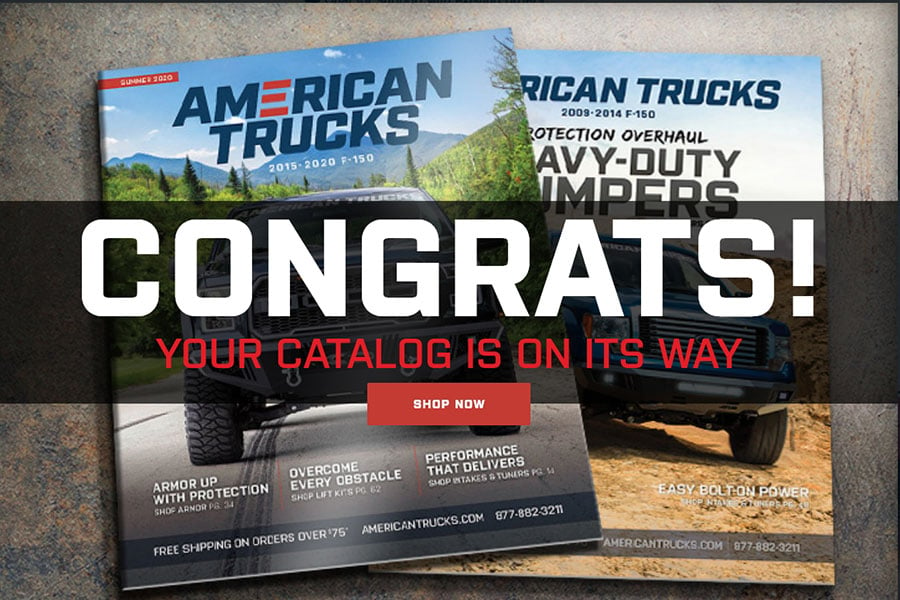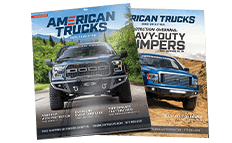
How to Install ReadyLIFT 1.5 in. Billet Aluminum Leveling Kit on your F-150
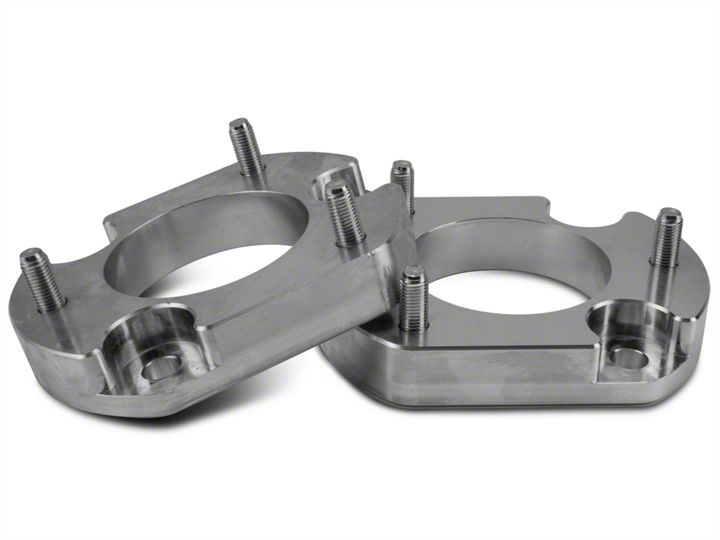
Shop Parts in this Guide
Installation Instructions 66-2052
Measure vehicle on level surface and raise by frame
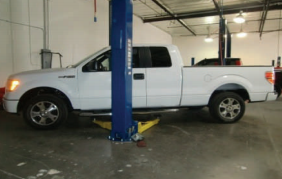
Remove front wheels/tires
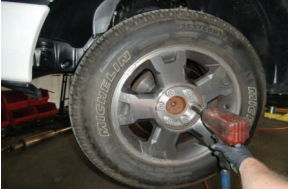
Photo shows 09-up front suspension. Earlier models may vary
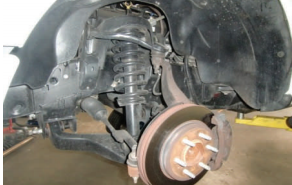
Disconnect sway bar end links on both sides of vehicle
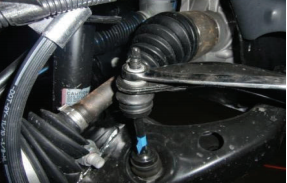
Loosen but do not remove upper ball joint nut
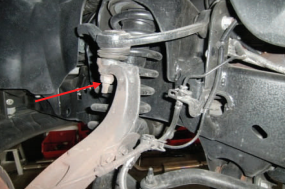
Strike with hammer to disconnect ball joint from spindle
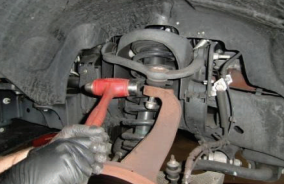
Push down upper control arm and remove ball joint nut
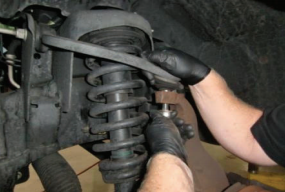
Remove lower strut mounting hardware
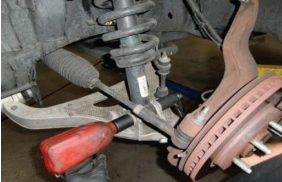
Remove strut upper mounting hardware & remove assembly
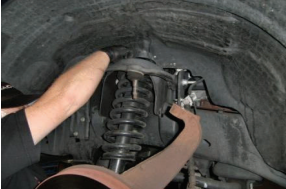
Photo shows tip of studs that need to be trimmed
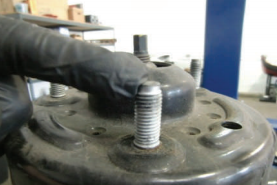
Bolt spacer to top of strut with OE hardware
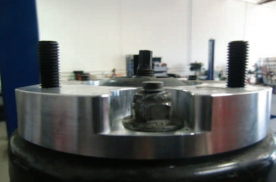
Use cutoff wheel or grinder to trim OE studs flush with spacer
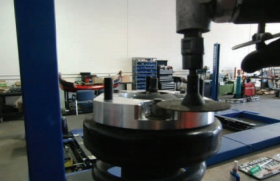
Reinstall strut w/spacer in vehicle w/new hardware, tighten
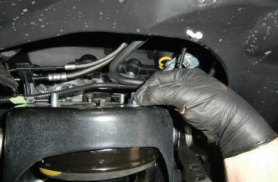
Reattach lower OE mounting hardware, tighten to spec
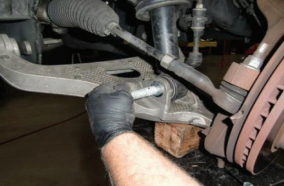
Use jack to raise suspension and reconnect upper ball joint
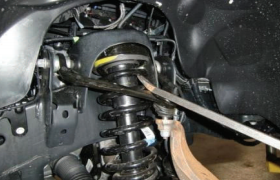
Tighten upper ball joint nut to spec
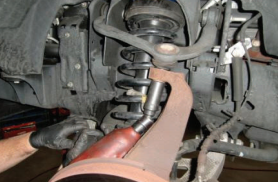
Reattach sway bar end links, tighten to spec
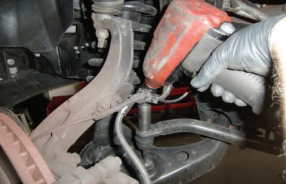
Reinstall wheels/tires and lower vehicle to ground
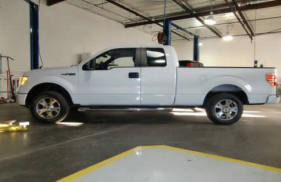
Final Checks & Adjustments
Post Installation Warnings: Once the vehicle is lowered to the ground, check all parts which have rubber or urethane components to insure proper torque. Torque wheels to factory specs. Move vehicle backwards and forwards a short distance to allow suspension components to adjust. Turn the front wheels completely left then right and verify adequate tire, wheel, brake line, and ABS wire clearance. Test and inspect steering, brake and suspension components for tightness and proper operation. Inspect brakes hoses and ABS lines for adequate slack at full extension. Failure to
perform the post inspection checks may result in vehicle component damage and/or personal injury or death to driver and/or passengers. Test drive vehicle and re-check the torque of all fasteners and re-torque wheels on vehicle. Readjust headlamps.
Vehicle Handling Warning: Vehicles with larger tires and wheels will handle differently than stock vehicles. Take time to familiarize yourself with the handling of your vehicle.
Wheel Alignment/Headlamp Adjustment:
It is necessary to have a proper and professional wheel alignment performed by a certified alignment technician. Align the vehicle to factory specifications. It is recommended that your vehicle alignment be checked after any off-road driving. In addition to your vehicle alignment, for your safety and others, it is necessary to check and adjust your vehicle headlamps for proper aim and alignment
Vehicle Re-Torque and Safety Inspection:
Upon completion of all services and adjustments performed on your vehicle, and within 50 miles of driving, check to ensure all fasteners and hardware are properly torqued to specification as noted in the vehicles factory service manual or the torque chart included.
